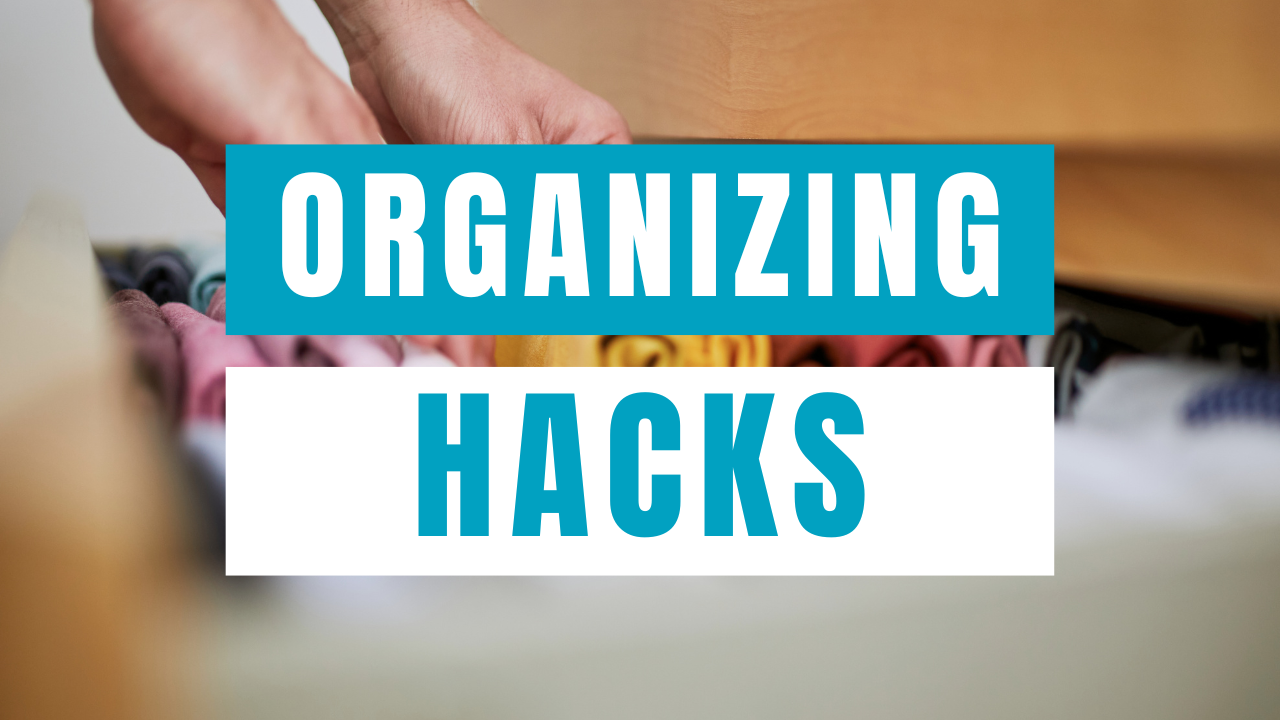Procrastination: Ways to Conquer It Effectively

The clutter under the kitchen sink, the mountain of laundry spilling out of the hampers, the over-crowded tool shed; what do these things have in common? They’re all classic signs of procrastination. Someone, somewhere might procrastinate, feeling as though they’ll never get around to dealing with such tasks. Perhaps the chore seems overwhelming? Or the idea of finishing it holds no appeal? No matter what reason prompts one to keep procrastinating, we’ve all been there. Wondering how to stop procrastinating? The good news is that, like any other negative behavior, it can be conquered. And, conquering procrastination is easier than you think!
Six Tips to Help You Conquer Procrastination
1. Combatting Procrastination with Effective Lists
Procrastination is a challenge many of us face, often leading us to procrastinate essential tasks. But have you ever considered how creating lists can be a powerful tool against this habit? Here’s how using lists can help you tackle procrastination and boost your productivity:
Visual Representation: Lists offer a tangible way to organize your tasks. When you jot down what needs to be addressed, you provide yourself a visual cue, which can be a crucial first step in learning how to stop procrastinating.
Alleviate Negative Feelings: The simple act of transcribing from a mental list to a physical one can lessen feelings of stress, guilt, and anxiety commonly linked to procrastinating.
Inner Calmness: A well-thought-out to-do list can calm a sense of inner chaos. When everything’s written down, tasks seem more manageable, and the overwhelming feeling that often leads people to procrastinate diminishes.
Prioritization: Lists help you focus on what’s crucial, allowing you to set clear priorities. Knowing what to tackle first can be half the battle against procrastination.
Time Management: By visualizing tasks, you can allocate your time more effectively, ensuring that you don’t procrastinate those important jobs.
Satisfaction: The joy of crossing completed tasks off a list shouldn’t be underestimated. This small action can be profoundly motivating, encouraging you not to procrastinate further tasks.
Remember, the key to overcoming procrastination lies not only in understanding why we procrastinate but in finding practical, effective strategies to move past it. Using lists is just one method, but its simplicity and effectiveness make it a top choice for many!
2. Create a List of Accomplishments to Combat Procrastination
Procrastination often stems from a lack of motivation or the overwhelming feeling of facing a big task. One excellent strategy to overcome these feelings and learn how to stop procrastinating is to focus on your past achievements through an “accomplishments list”.
Here’s why and how it can be a game-changer:
Visual Motivation: Just as a to-do list serves as a visual reminder of tasks to complete, a list of accomplishments showcases your past successes, reminding you that you can conquer procrastination.
Push Productivity: Witnessing your previous progress can be a significant push. It’s like telling yourself, “If I didn’t procrastinate then, I can do it now.”
Before & After Strategy: Consider taking ‘before’ pictures when facing a daunting task. For instance, if you’re putting off organizing that overflowing tool shed, snap a photo of its current chaotic state. Once you’ve tackled the job (and effectively stopped procrastinating for that task), capture an ‘after’ photo.
These visual reminders are:
- Concrete evidence of your capability.
- A deterrent against further procrastinating.
- A motivational booster for future tasks.
- Celebrate Small Wins: Each time you complete a task, especially those you’re most likely to procrastinate on, add it to your accomplishments list. Celebrating these wins, no matter how small, can be incredibly motivating.
The idea here is to use past achievements as a tool against procrastination. When you constantly remind yourself of what you’re capable of when you don’t procrastinate, you’re more likely to jump into tasks with enthusiasm and confidence.
3. Overcoming Procrastinating by Just Starting
At first glance, “just starting” might sound like trivial advice. However, when it comes to overcoming procrastination, this seemingly simple mantra can be a powerful weapon.
If you’ve ever found yourself thinking, “How can I stop procrastinating?”, you’re not alone. Many of us delay tasks, and the thought of beginning can often be the biggest hurdle. Here’s a closer look at why, and how to make it easier:
Breaking Tasks into Chunks: When faced with a task that causes us to procrastinate, one effective strategy is to break it down. By doing so:
The task feels less overwhelming.
Smaller, mini-goals become evident and are more achievable.
- Starting on a smaller piece can give you the momentum to keep going, turning the act of starting from a roadblock to a rolling start.
- Utilize the 2-Minute Rule: James Clear, renowned for his insights into habits and human potential, shares a practical method to combat procrastinating tendencies: The 2-Minute Rule. The principle? If a task takes less than two minutes, do it immediately. For more extensive tasks:
- Commit to working on it for just two minutes.
- Often, once you begin, it becomes much easier to continue. Those two minutes can evolve into hours of productive work.
- Commit to working on it for just two minutes.
- Overcome Mental Barriers: Recognize that the biggest barrier to starting isn’t the task itself but the mental weight of thinking about it. The mere act of beginning can drastically reduce the anxiety associated with procrastination.
In the end, while there are various strategies and methods to tackle procrastination, the most crucial step is often just to begin. By understanding the reasons we procrastinate and having methods to counteract them, we can foster a habit of diving into tasks with enthusiasm and determination.
4. Reward Yourself
Procrastination is a tricky behavior that many grapple with. James Clear sheds light on why we often procrastinate: the concept he refers to as “time inconsistency”.
- Time inconsistency explains the human brain’s inclination to prefer immediate rewards over future benefits. Essentially, when you plan to tackle something, you’re setting a roadmap for your future self. Yet, when the time comes to act, it’s the present self deciding, and often, it’s this present self that succumbs to procrastinating.
But how do you get past this hurdle? Here’s where rewarding yourself plays a pivotal role:
- Understand the Dichotomy: Your present self is often lured by instant gratification, overlooking those valuable future rewards. By recognizing this, you can strategize on how to stop procrastinating.
- Immediate Rewards: After completing a part of your task, reward yourself. This satiates your present self’s desire for instant gratification and fuels motivation.
- Temptation Bundling: Turn the tables on procrastinating by pairing a task you’re delaying with something you enjoy. For instance, indulge in your favorite audiobook as you declutter the kitchen. This way, you’ve achieved your long-term goal of completing the task while also meeting the short-term pleasure of listening to an engaging story.
By incorporating rewards into your routine, not only do you curb the urge to procrastinate but also ensure a more enjoyable journey towards achieving your goals.
5. Understand the 'Why' Behind Tasks
Often, the reason behind delaying tasks isn’t a lack of ability, but rather a disconnect from the task’s deeper meaning. Here’s how focusing on the “why” can guide you on how to stop procrastinating:
- Reconnect with Purpose: Instead of simply seeing a task as something to cross off a list, try to see it as an opportunity. Ask yourself: Why is this task important to me? How will it benefit me or others?
- Emotional Resonance: Recognizing the emotional satisfaction from a job well done can push you past the inertia of procrastinating. Envision the sense of accomplishment you’d feel after completing it.
- Finding Personal Meaning: Delve deeper into the reasons you might want to complete a task. For the enormous pile of laundry, could the “why” be the joy of wearing your favorite clean shirt? Or perhaps the peace of mind knowing you’re starting your week organized?
- Emphasize Positive Outcomes: Humans are wired to seek rewards. By concentrating on the positive results, like the free space or order that comes after decluttering, you can find added motivation to stop procrastinate and get started.
Remember, by consistently reminding yourself of the bigger picture and your underlying motivations, you can effectively tackle procrastination and gain a more meaningful connection to your daily tasks.
6. Schedule Tasks to Tackle Procrastination
Let’s delve into the power of scheduling to curb the pull of procrastination:
The Power of Commitment: It’s common to mentally note a task. But when you schedule it for a specific day and time, it shifts from being an abstract notion to a tangible commitment. This move:
- Counteracts the urge to procrastinate.
- Emphasizes the task’s importance and reduces the chances of backing out.
- Introduces a self-imposed deadline which can serve as a motivator for many.
- Counteracts the urge to procrastinate.
Proactively Schedule Procrastination: Sound ironic? But scheduling “downtime” or moments to procrastinate, like setting aside time for social media, can:
- Alleviate guilt tied to these activities.
- Restrict distractions during work intervals.
- Act as a reward mechanism, potentially making the overall day more productive.
- Alleviate guilt tied to these activities.
Understanding the “Why”: Dive into the reasons behind your tendencies to procrastinate. Is it fear? Overwhelm? By scheduling and breaking tasks into manageable chunks, you can better confront and overcome these barriers.
Remember, you can overcome procrastination. With the right strategies, like intentional scheduling, you’re not just learning how to stop procrastinating but also setting yourself up for increased productivity and satisfaction.

Learn About our Professional Organizing Certification











